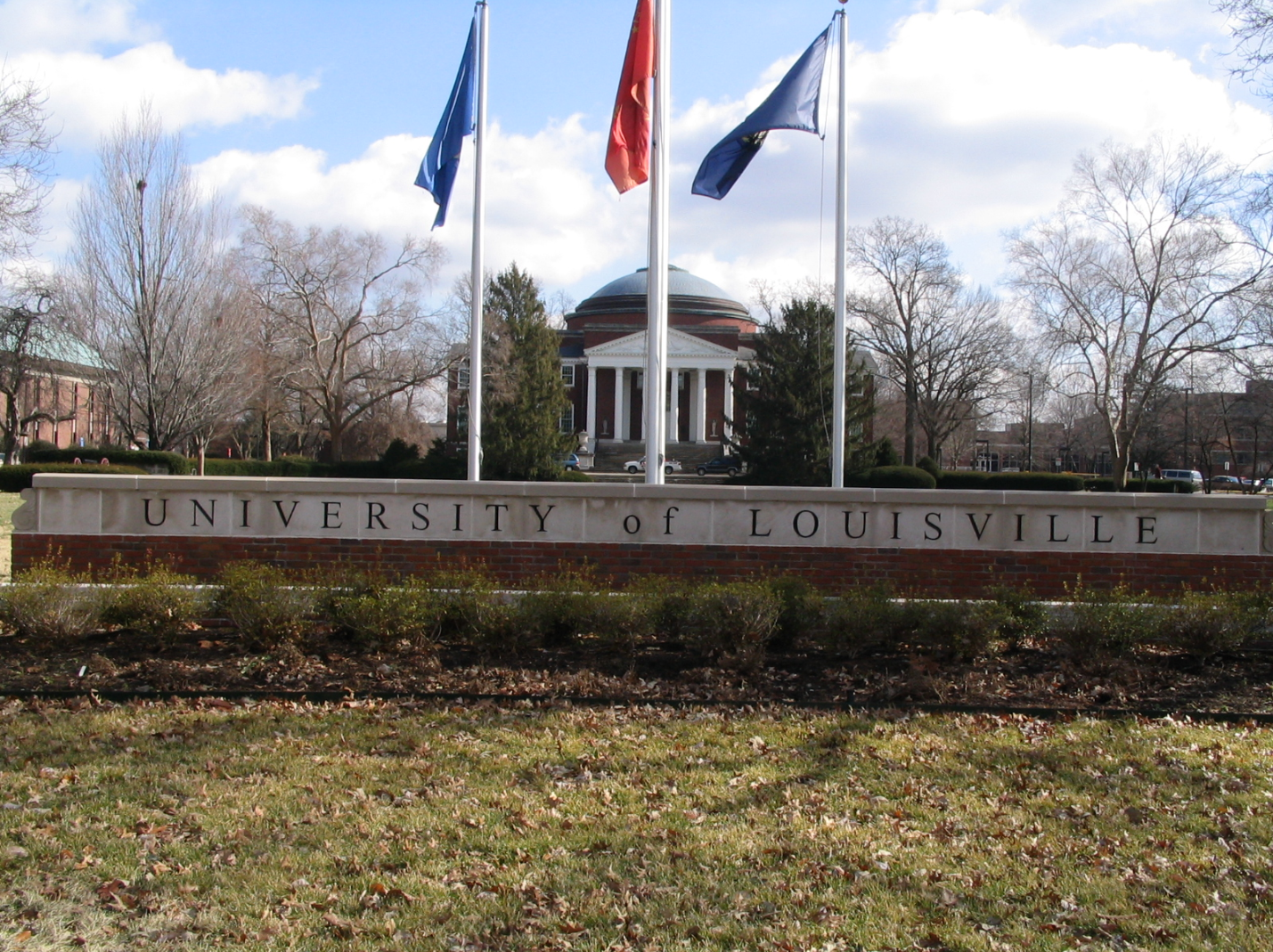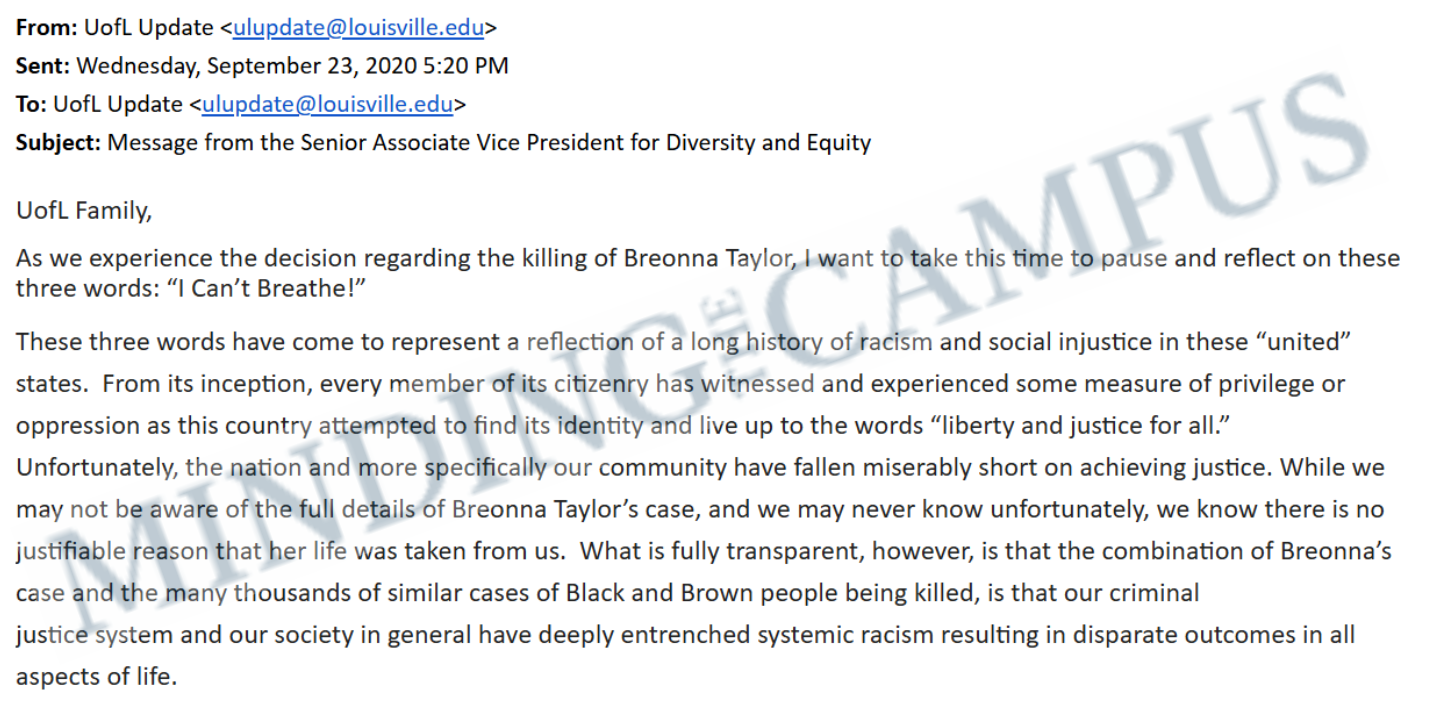
Like many others, I have found myself less efficient and effective at work over the past few weeks. On Wednesday, September 10, I was very upset that Charlie Kirk was assassinated at a college event in Utah while engaging in free speech. I was thinking about what a tragedy that was for his young children, who, being so young, will never remember their father.
That afternoon, my son, who is a recent University of Louisville (UofL) graduate, called me. He was upset, saying he had watched the actual video, and told me not to watch it. Then he said, “Dad, maybe you shouldn’t speak up and say things like you do at the University of Louisville or attend some of the events like you do.”
I have noticed that he has had a somewhat nervous and anxious disposition since he was around the age of Charlie Kirk’s little girl. So, I downplayed his concerns.
Then, I began to see some of the videos posted by leftists, including some professors and teachers, practically celebrating that the young man was assassinated. Some were saying that he had it coming and would be glad if that happened to other “MAGA bigots.” I never could have imagined how many people would be pleased that somebody who verbalized political views like mine was killed.
[RELATED: GMU PhD Student’s Call to Kill Trump Sparks Free Speech Debate]
The next day, I heard through the news that someone had put up posters in UofL buildings with a caricature of Kirk that depicted him with a hole in his neck and blood splatter, and reading at the bottom, “DEBATE THIS.” (See below). I thought that could be a threat, or at least a warning to people like me at UofL to shut up.
View this post on Instagram
A most disconcerting aspect of this situation was that UofL administrators did not issue any immediate statement, either on the assassination or on the posters, nor expressed any offer of support for individuals who may have been traumatized by the assassination. This nonresponse was particularly grating because, in the past, university officials have issued statements and offered support whenever events perceived as traumatic by left-leaning groups and individuals occurred.
For example, UofL hosted an open session immediately after the 2016 election to help people process the so-called trauma of Donald Trump’s victory, which was attended by hundreds of students, faculty, and staff. It did the same in response to the death of George Floyd. And, following the grand jury decision not to indict any Louisville police officers in the death of Breonna Taylor, UofL Senior Associate Vice President for Diversity and Equity, V. Faye Jones, sent an email to the entire campus community, asking everyone to reflect on the words, “I Can’t Breathe!” She also used the occasion to perpetuate the notion that the criminal justice system targets racial minorities, a claim that stokes division rather than truth and stands at odds with the data.

Through personal email messages and news reports, I learned that registered student organizations on campus would sponsor a vigil for Charlie Kirk on the Monday after his assassination. I saw no campus-wide communication about this event, even though I sent an email to the President and Provost requesting that some notification be sent because a lot of people on campus were very traumatized by the assassination and the lack of any response from university administrators.
I attended the vigil, and some students commented that they were glad to see me there, as a professor, because they didn’t see any support for people like them from UofL. Shortly after that night, with no official response or statement from administrators, I felt justified in thinking that administrators did not care about the estimated 15 percent of UofL employees, and probably 30 to 40 percent of incoming freshmen, who hold somewhat conservative views.
I spoke with individuals in the university community who shared similar sentiments. One female colleague said that she had never felt so afraid to be a conservative at any other time, on any other campus. Even a colleague of mine who is very liberal and hates Donald Trump said it seemed like administrators didn’t care about conservatives on campus.
[RELATED: Advocating Violence Is Permissible—If You’re a Campus Leftist]
I called and spoke with the UofL Chief of police to obtain information about whether the posters in the buildings were an actual threat. University administrators never communicated information about the posters. And UofL President Gerry Bradley only issued a statement a full week and a half after Kirk’s assassination. When he finally did, the statement was a parade of broad abstractions about free speech and civics. The statement also included the following sentence on the importance of UofL becoming an “inclusive” environment:
One of my primary goals in establishing the Commission on Climate, Culture and Well-being is to cultivate an inclusive, safe environment where all members of the university community can discuss and even debate the difficult issues facing our university, our commonwealth and our nation.
I dislike it when people complain extensively without offering potential solutions. So, I would like to conclude by requesting earlier and improved communication in the future with the university community regarding traumatic events that may affect any group on campus. Additionally, university administrators should sponsor events where both sides of controversial issues can be discussed and debated respectfully and honestly.
Many people perceive that the university only supports, promotes, and values certain political and social viewpoints. Administrators need to make a conscious effort to combat that perception through concrete actions.
Image: “University of Louisville, Louisville, Kentucky” by Ken Lund on Wikimedia Commons
It’s ironic that the University of Louisville’s Quality Enhancement Plan (QEP) is built around the Paul–Elder critical thinking model, yet the President’s response to Charlie Kirk’s murder shows no evidence of applying it.
If the university truly values intellectual empathy, fair-mindedness, and integrity—core traits of the Paul-Elder framework—then it should model those principles in times like this, not only when it’s politically convenient.
The selective empathy described here could have been avoided by applying the very model UofL teaches: questioning assumptions, seeking fairness, showing empathy for all students, and having the intellectual courage to stand for consistent moral reasoning, no matter who the victim is.
Practice what you teach.
As a member of the University of Louisville faculty with more than 25 years of service I share Dr. Foster’s opinion on “selective empathy” demonstrated by our university in the wake of Charlie Kirk’s assassination. Charlie Kirk’s murder was an act of vicious political violence that had to be blamed by the university community and its leadership openly and decisively.
Dr. Alexei Izyumov
It is about time someone stood up for conservatives on campus. Please stand up as administrators and value all students and faculty members regardless of their political positions.